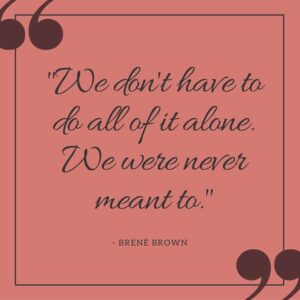
 Today I had the joy of learning about a family caregiver’s adult family member who was able to choose to go to treatment after a long and winding road of family caregivers trying everything. When your loved one is over 18 you might fear there is nothing you can do to help them with recovery from one of these deadly brain illnesses.
Today I had the joy of learning about a family caregiver’s adult family member who was able to choose to go to treatment after a long and winding road of family caregivers trying everything. When your loved one is over 18 you might fear there is nothing you can do to help them with recovery from one of these deadly brain illnesses.
It is much more difficult than before they turn 18. No question. Your rights are extremely limited.
And, you do not need to give up hope or give up offering support. Look closely and you can see the rainbow.
Some of the tips on the NEDA page for caregivers may be useful. And, you may have tried ALL of them already. Please do not give up hope. We never know what the tipping point will be for each person.
It takes accompaniment and support to go about finding that sweet spot of love and compassion while gently enforcing boundaries and encouraging them to get the care they need to live the life they deserve. It’s tricky to say the least.
There are people who help families get their loved one
treatment when they need to save their lives. One example is one of my partners at Recovery Roadmap Specialists, Ibbits Newhall. She works with families and a team of folks to help navigate this very delicate process of getting an unwilling loved one into life saving treatment.
It’s important to have the tools, skills and people to help guide you on this confusing and terrifying journey of trying to save a loved one’s life.
Fear cannot be driving the bus.
Here are a few things you’ll need for this journey that we discuss in our Recovery Roadmaps webinar series “Going from Panic to Plan” that is available to families:
- Learning tools of self management
- Distress tolerance
- Communication skills including; validation & acknowledgment
- Boundary setting
- Keeping yourself from being completely drained – aka: self-care
These topics are covered in the Hope Network, LLC HUG Kits because we realize not all family caregivers can access 1:1 coaching to learn these skills. So we created a series of 10 very short videos to accompany a little guidebook to create your plan.
It’s not easy honing your skills and getting all of the proper helpers in place to help you save your child. You don’t have to do this alone.
Often times individual therapists can help you create a team of your own instead of utilizing a center that has a team in place. The evidence is increasingly showing that when the family is included, the treatment outcomes improve.
Doing things you enjoy while you have a child who is so sick may seem selfish and counter intuitive but it is of higher moral ground to practice extreme self-care. This is a crisis and your adult child needs a parent who is in top form and ready to go to bat for them. So, let’s do it!
Doing your part to preserve your sanity and health helps you remain calm so you can actively preserve the relationship. That doesn’t mean it is going to be all wine and roses, but you can do your best to show the person in recovery that they are loved. Not an easy task with someone who often thinks they are unlovable and has their thoughts distorted by the eating disorder.
When caregivers are supported, they can be calm, compassionate and confident in decisions and can then cope with the wild things the eating disorder will throw at them.
Getting support is an essential piece of self-care. Training on how to be an effective caregiver is available and research is now beginning to show how effective it can be in reducing caregiver anxiety, distress and burden. Check out the research done at Kings College in London by Dr. Janet Treasure.
Our job is making sure YOU are filled up. Your job is making sure your oxygen mask is FIRMLY in place and you’re constantly filling your cup so that you can keep working on your skills to help your loved one. You do not have to do it alone. You can check out options for support here on the website.
Remember, recovery is still possible. Hope matters.

